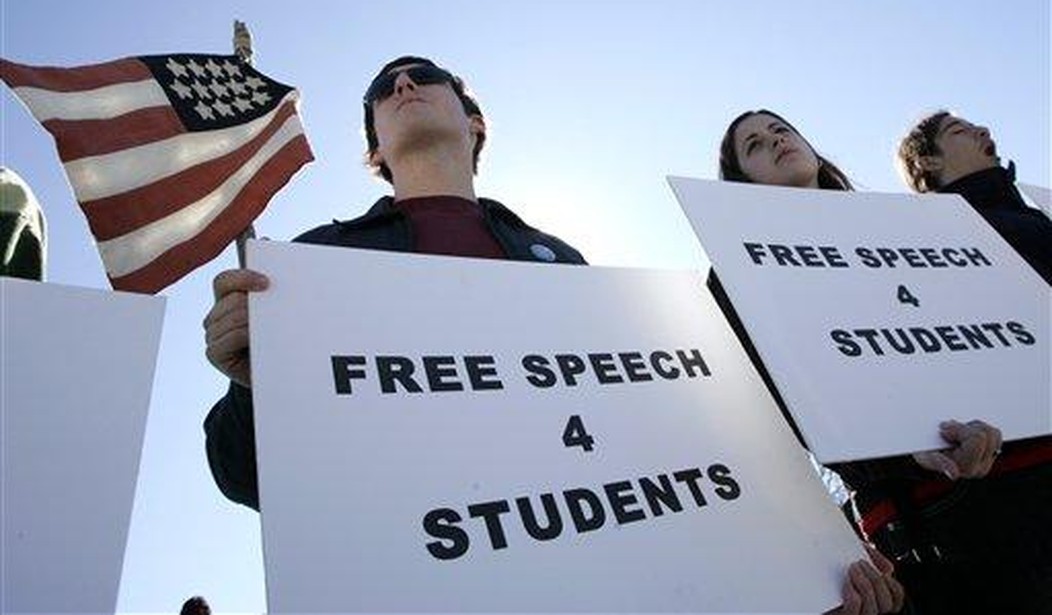Over the last decade or so, we’ve lost a lot.
One valuable item missing: the idea of the opinion.
In times past, everyone was allowed to have one. An “agree to disagree” approach was frequently employed.
Your family, your friends may have all had different views.
Contemporarily, such a lifestyle doesn’t look to be liked.
We’re living in the days of shadow-banning. And not just by big tech, but nieces and nephews; co-workers and old friends. Modern Americans avoid those with whom they can’t concur.
Sometimes, such shunning is done in the light. Due to political differences, people bluntly say goodbye to those once held dear.
We isolate from others as our bubble becomes more opaque and less full.
Meanwhile, those in leadership utter phrases such as “Freedom, but,” “Liberty, except.” We’re told nothing is more important than American value X, yet Y will have to erode it.
Thankfully, colleges campuses are keeping free speech alive.
Apropos of such preservation, Northwestern University’s student paper is crystalizing the rules of its op-ed section.
In a February 13th article, The Daily Northwestern Editor Lily Nevo notes the complexity of culling submissions for print: “There is no cut-and-dry formula for what [the paper deems] worthy to publish…”
However, she states, “[W]e do have some basic guidelines.”
Select limitations concern word count and unconfirmed facts. Additionally, Lily says, nothing aimed at generating profit will be promoted.
Another no-no: opinions of people who aren’t marginalized.
I am also wary of publishing pieces from those who hold positions of institutional power or those who already have platforms to disseminate a message. The opinion section is a powerful platform; I would like to ensure it is used to amplify the voices of those who are not necessarily represented in other spaces, rather than give more space to those who already have it.
“I do not feel comfortable,” she makes clear, “allowing a person in power, particularly of an organization that has previously caused harm to students on campus, to use this section as a medium to justify their status.”
What writers are left?
Whoever they are, they’d best not engage in hate speech — which is, by the way, different than free speech:
Finally, we do not publish pieces we deem offensive. Though the line between hate speech and free speech continues to be blurry and we always evaluate pieces on a case-by-case basis, I have come to broadly define hate speech as expression that diminishes an identity-based group or a person holding a specific identity from a protected class.
As for what constitutes an “identity,” that’d be “something a person cannot change.”
Don’t misunderstand:
To belong to a student organization, to study a certain subject or even to affiliate with a certain political party are not identities protected from criticism.
That would make sense. But what if a student organization is considered “minoritized“? What if a political faction is unable to enjoy institutional power?
That must be where the “case-by-case basis” comes in.
Free speech has come a long way. So has independent thought.
In a related story, something that’s traveled an enormous distance: college.
-ALEX
See more content from me:
Man Robs a Train, Gets Identified and Delivered to Cops — by His Mom
Professor Calls Student a Man From China, Hundreds Demand the Faculty Be Reprogrammed
University Gives Students Antiracist ‘Tips and Tricks’ so They Can ‘Decolonize’ Campus
Find all my RedState work here.
Thank you for reading! Please sound off in the Comments section below.













Join the conversation as a VIP Member